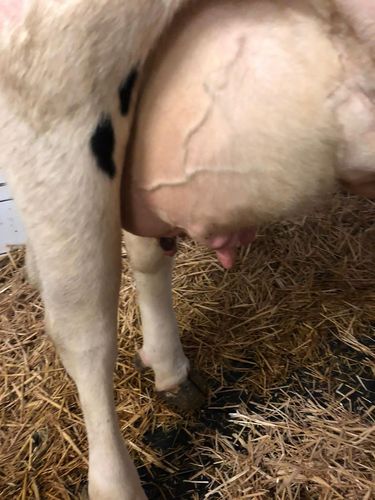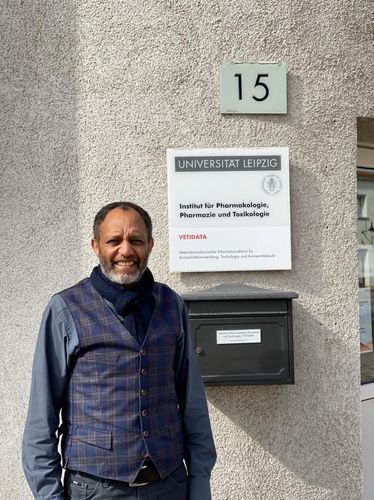The project conducted by Professor Getu Abraham and his team from the Institute of Pharmacology, Pharmacy and Toxicology at the Faculty of Veterinary Medicine is funded by the Federal Ministry for Economic Affairs. It will help to significantly reduce the risk of severe disease and the associated economic loss. “Since our method also prevents the development of multi-resistant germs, and thus an excessive use of antibiotics in livestock farming, we are also making a contribution to animal welfare,” said Abraham.
The marker is a specific protein that is released from migrating inflammatory cells – for example, when a cow has contracted mastitis. “By isolating this protein, we have identified an efficient biomarker that can predict the severity of mastitis in routine diagnostics. Consequently, it is possible to use the biomarker to already clearly diagnose mastitis in dairy cows in the subclinical stage,” said Abraham.
The inflammation marker is easily detected in milk samples, without the need for invasive procedures on the animal. This means that at-risk animals can be clearly identified and individually treated days before the actual symptoms of the disease appear. As the team’s investigations showed, in the case of acute udder inflammation the indicator rises significantly in the milk without any noticeable time delay, and falls rapidly by more than a third of the original value following treatment with antibiotics or after the inflammation has subsided. This means that the biomarker can be used to monitor the disease and treatment.
The research team is currently working on developing the test procedure further in order to enable simple testing of patients on site. In the future, the researchers plan to extend the application to different matrices such as blood, faeces or urine and to validate it for different species.































































